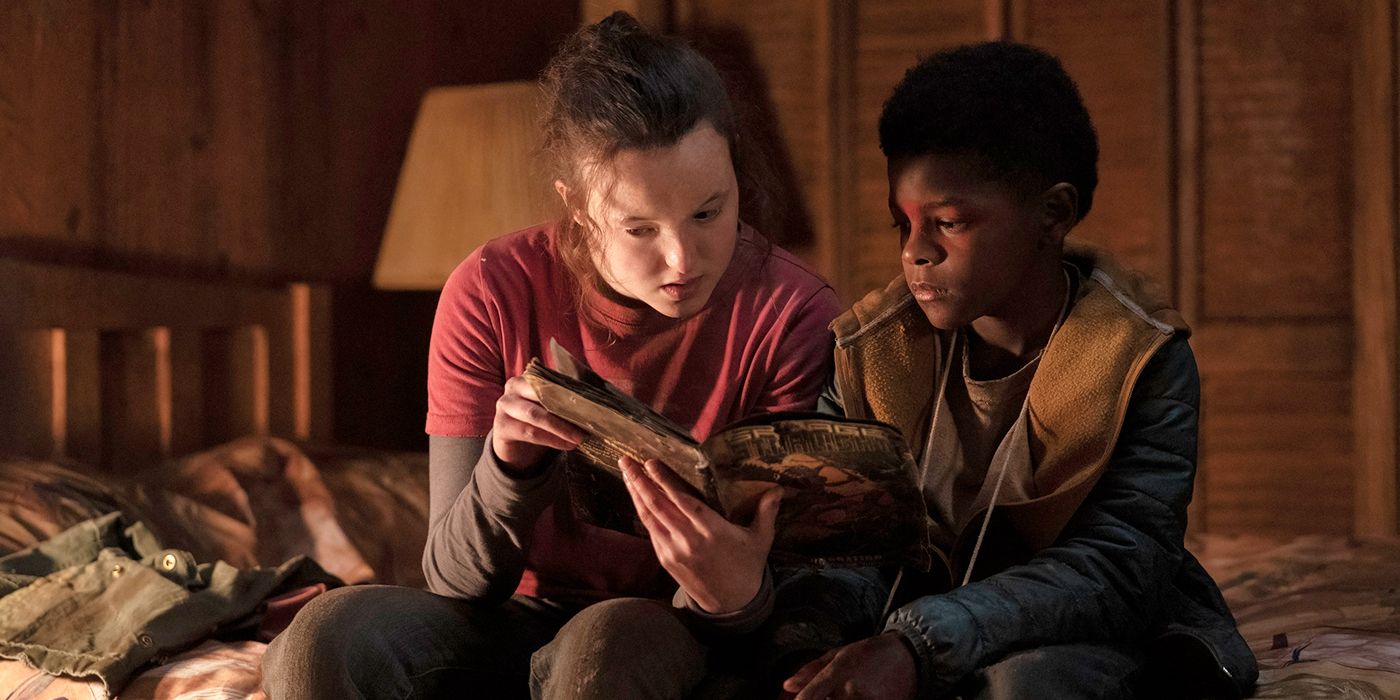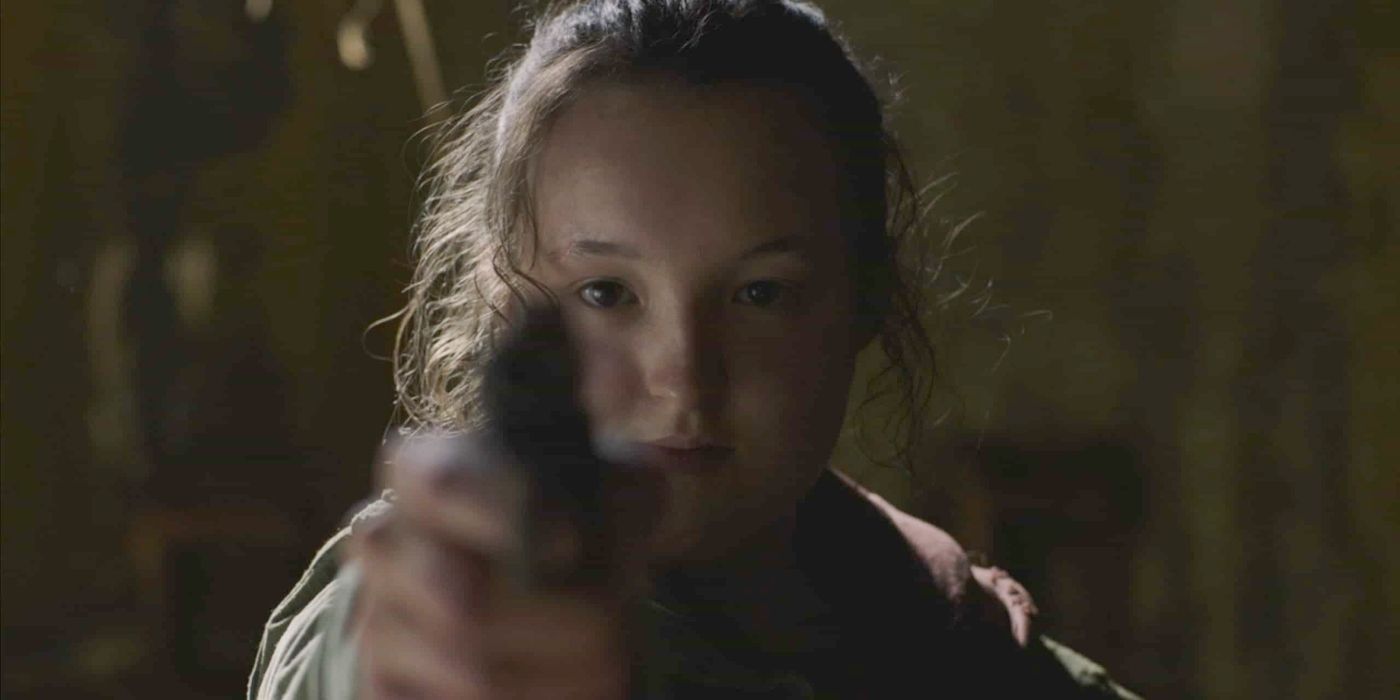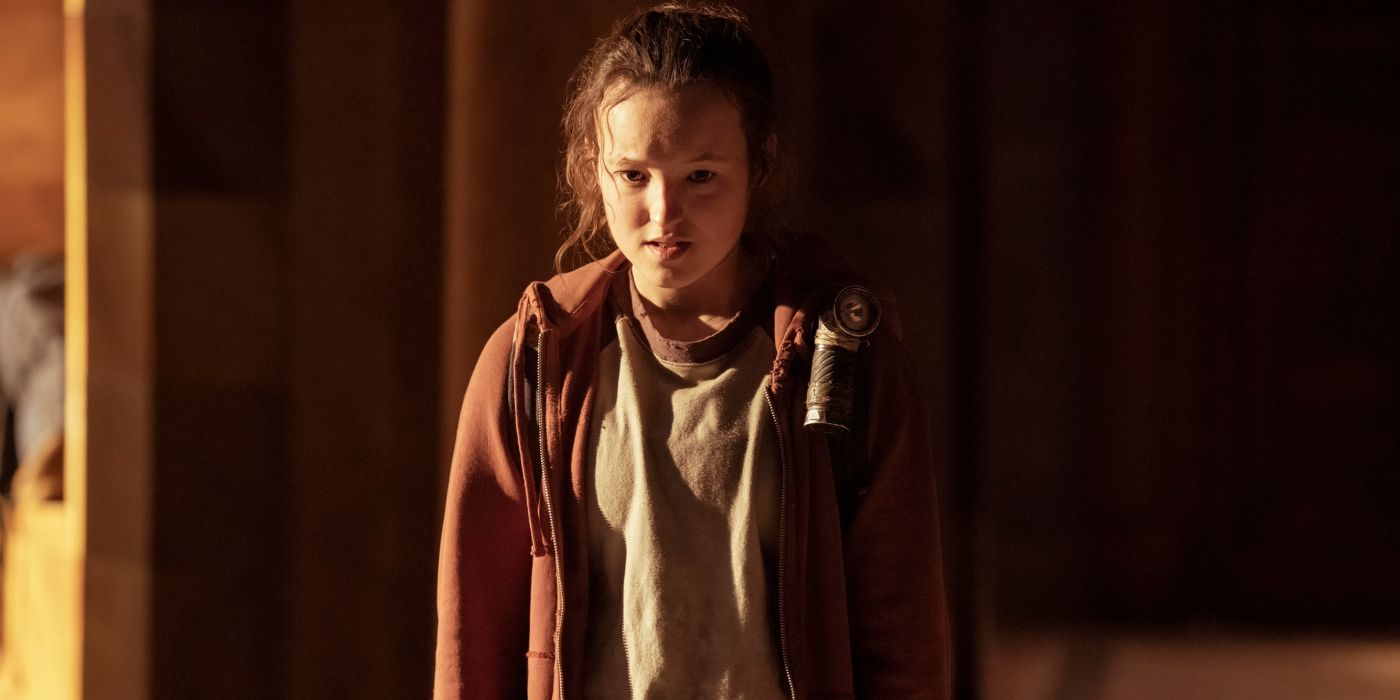Editor's Note: The following contains spoilers from Episode 5 of The Last of Us. It's tough to admit, but, after Episode 5 of The Last of Us, Ellie (Bella Ramsey) probably has a crisis of faith ahead - and that's all for the best. "Endure and Survive" ends with the tragic deaths of Henry (Lamar Johnson) and Sam (Keivonn Woodard), the latter becoming a stalker after being bitten in the whole skirmish with Kathleen's (Melanie Lynskey) militia in the outskirts of Kansas City. Before going to sleep, he reveals that to Ellie, and the girl tries to lift his spirits by spreading a little of her own blood over his wound. She's immune to the cordyceps, so maybe it has some effect.
But it didn't have. When Ellie wakes up, Sam is already dead and turned. He jumps at her, forcing his brother to kill him. Crushed, Henry shoots himself afterward, having lost all his purpose in life along with his little brother. Ellie and Joel (Pedro Pascal) proceed to bury the bodies, and, while he is used to losing people in his life (if one can really ever get used to such things), she feels guilty about not being able to save Sam and leaves behind his drawing board with the words "I'm sorry". Her facial expressions make evident her frustration with herself.
Ellie Is Just Starting To Understand Her Role In This Fight
Ellie's intention was the purest possible in trying to give Sam some hope after he was bitten, as people don't deserve to die without hope, especially a kid. Maybe she didn't really expect that spreading her blood over his wound would actually work, but there's no harm in keeping some hope herself. The fact that this plan didn't work was devastating to her, and, tragic as it was, can still be seen as a necessary heartbreak for her to grow up and go on, to endure and survive.
So far in the series, Bella Ramsey's portrayal of Ellie has been one of the highlights, making the differences between the versions of the character in the game and in the series more evident, and all for the best. More than once, Ellie has been a beacon of light and optimism for the viewers. Despite being a little foul-mouthed, she really is charming and has even reminded us of how good we really have it being able to enjoy trivial things, like "going up in the sky", for example. Seeing her marvel at the world beyond the walls of a Quarantine Zone has been beautiful, but the awareness of her condition also gave her a smug attitude, almost as if she had superpowers.
This near-arrogant attitude is not exclusive to Ellie, of course. It's almost like a defense mechanism for teenagers to sport a know-it-all attitude when talking to adults, to show that they are also big and wise. And Ellie is clearly gifted for her age in more ways than just her immunity. She may be a little clueless, but there is a healthy amount of sensibility, too. What really sets her apart, though, is having the knowledge that she is truly special. In a world ravaged by the cordyceps, she is immune to the disease that makes everybody afraid. She knows she carries the cure for this illness inside her, and this makes her quite literally the most important person alive.
That's an awful lot for a teenager to process, no matter how intelligent and mature they are. Ellie thinking she could actually save Sam is perfectly in line with how any person her age would act, with hope and a hint of skepticism. What none of them is ever ready to deal with, however, is frustration when a plan goes wrong. That feeling is awful for anyone, let alone people who feel emotions so strongly like teenagers. The good news is these awful moments often carry valuable lessons growing up.
What Ellie Needs To Understand Is She Doesn't Have Super Powers
In Episode 2, "Infected", Tess (Anna Torv) explains to Ellie how the world works outside the wall of a QZ. It was the girl's first time seeing the infected with her own eyes, and that left an impression on her, as it should. One of the essential things Tess tells her is that she isn't "immune to being torn apart", a theory she understands and doesn't want to test.
But her attitude towards her gift and her journey can't really be described as responsible. Rubbing her blood on someone else's wound is dangerous in many levels. She may not know about blood-transmissible diseases, but given that the cordyceps spreads like that, too, it would be logical for someone like her to assume other illnesses also could. Things like AIDS are likely not the first thing to cross a teenager's mind in a post-apocalyptic world when talking about blood, but for Ellie, who literally has a condition, that should pop up immediately.
What still applies to teenagers in her world, though, is that they need to go through some polishing before becoming fully-functioning members of society. Everyone has their skills, but that doesn't mean they don't need to learn how to properly develop those before unleashing them into the world. Ellie is no different. Her gift is the most significant there is in her world, but it's not a superpower. If it were that simple, blood transfusions would be all that was necessary, but that's not how it works. Her blood can be the base for a cure for the cordyceps to be developed, but it's not the cure itself.
Of course, being the good-hearted person she is, there's no harm in trying to give a person some hope, especially a kid like Sam. Worst case scenario, he wouldn't make it, unfortunately, as he didn't. But this is also an opportunity for Ellie to understand that life isn't all good and fair, and that the fact that she's immune means she has to work to make that helpful to others. So she has to get the proper treatment to share her gift with the world, something we all go through when growing up.



